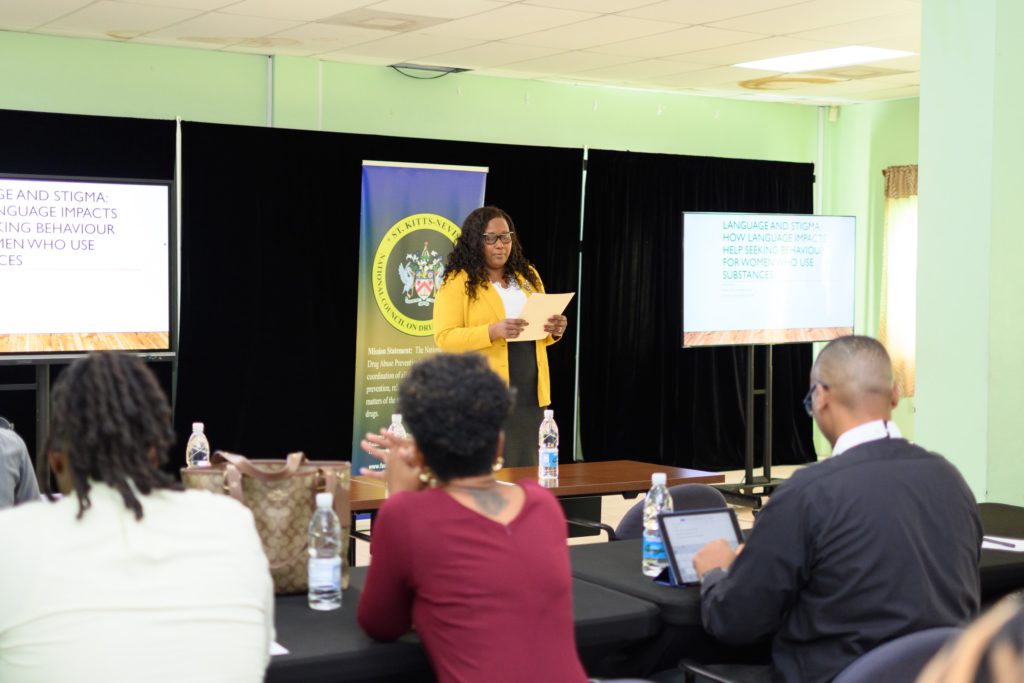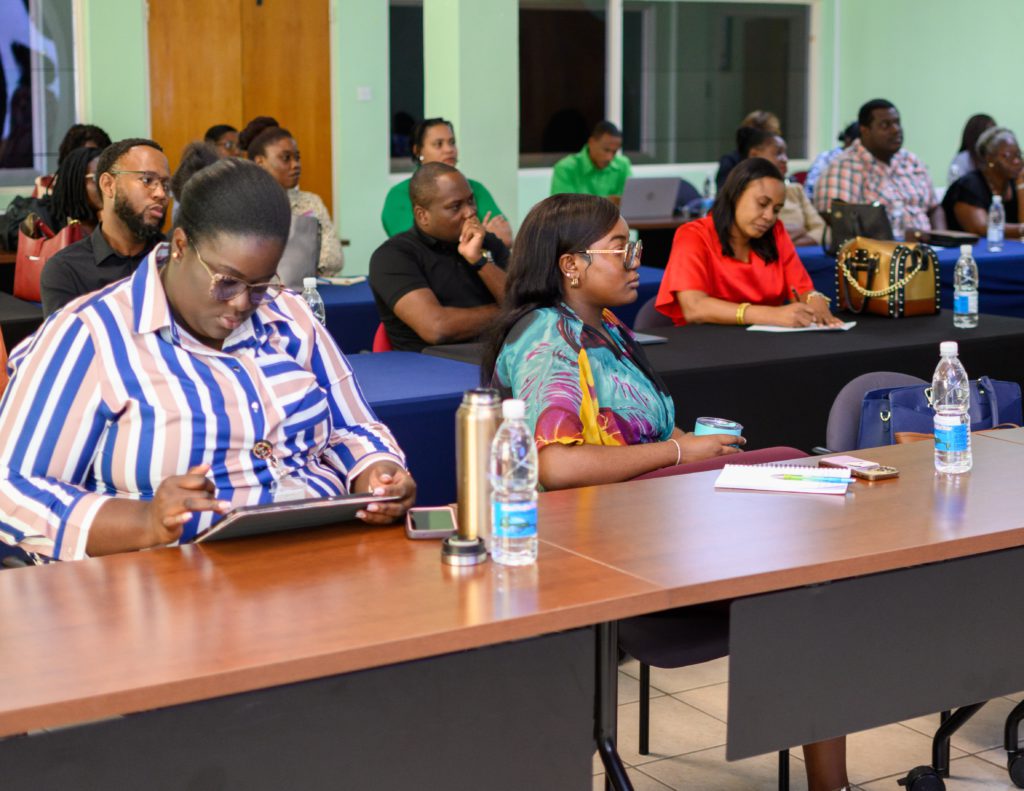November 28, 2024 | NEMA
The National Council on Drug Abuse Prevention (NCDAP) convened an important stakeholder meeting today at the National Emergency Management Agency (NEMA) to address a critical aspect of substance use: the language of stigma surrounding women who use substances. The event, facilitated by Mrs. Michele de la Coudray Blake, representative of the Ministry of Social Development and Gender Affairs to the National Drug Council, brought together key stakeholders from diverse sectors to discuss how harmful language perpetuates stigma and hinders efforts to support women in need of care.
In her opening remarks, Mrs. Karimu Byron Caines, Director of the NCDAP, welcomed attendees and highlighted the unique challenges faced by women who use substances. She emphasized how societal judgment and the use of stigmatizing language compound these challenges, making it more difficult for women to seek help or access necessary services.

“Substance use is a complex issue that affects many individuals and families. However, women who experience substance use face distinct challenges that are often intensified by societal stigma,” said Mrs. Caines. “Today, we come together with a shared purpose: to explore how the language we use can either exacerbate or reduce the stigma women face and to find actionable solutions that foster compassion and resilience.”
The meeting focused on several key areas crucial to addressing stigma:
1. Current Language Practices and Their Impact Discussions centred on how the language used by professionals and within society can either reinforce harmful stereotypes or contribute to a more supportive, compassionate environment for women. Attendees examined the negative effects of terms that dehumanize women and perpetuate their marginalization.
2. Identifying Gaps in Knowledge and Practice Stakeholders reviewed areas where knowledge gaps exist in understanding substance use among women and how these gaps contribute to stigmatization. It was emphasized that overcoming these gaps is essential for creating more effective and inclusive services.
3. Promoting Respectful and Empowering Language Participants explored strategies for adopting language that is person-centered, respectful, and empowering. The aim is to shift the narrative surrounding women who use substances from one of judgment to one of support and dignity.
4. The Role of Organizations in Driving Change A central theme was the responsibility of organizations—ranging from healthcare and education to community organizations and advocacy groups—in promoting positive change within their institutions. Each stakeholder was encouraged to actively contribute to creating an inclusive, stigma-free environment.
Mrs. Caines concluded her remarks by reaffirming the importance of collaboration. “I am confident that through our collective expertise and shared commitment, we can create a more compassionate and effective response to substance use—one that reduces stigma, promotes resilience, and supports the well-being of women.”

The discussions at today’s meeting are a critical step toward shifting the narrative around substance use, focusing on empathy and empowerment rather than judgment. The collective insights and commitments from all the stakeholders will lay the groundwork for future initiatives aimed at improving the lives of women affected by substance use.
The National Council on Drug Abuse Prevention remains dedicated to driving these changes and creating a more inclusive, supportive society for all.
-END-









